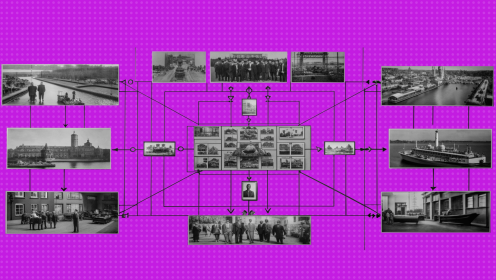What is Involvement Motivation?
At the heart of almost everything you do or don't do is motivation: you have a reason to eat carrots, walk down the street to work, or lie on the couch. Psychologists have been building various theories about motivation for a long time, trying to understand what exactly induces a person to perform certain actions. One of the most popular is the theory of three needs, which was formulated by psychologist David McClelland in the 40s of the last century.
According to the theory of three needs, all our needs are divided into 3 large groups:
- the need for power,
- the need for success,
- the need for belonging.
We all want to achieve our goals and be successful, we all want to feel strong, as if we have everything under control - this is obvious, so we will talk about the first two groups of needs some more. But the need for involvement most often arises in the subconscious, remaining not so obvious. And she (as well as any other) can be stronger than the rest.
The motivation of involvement (or the need for complicity) is when you strive to be a part of something and want not only to build friendly relations with the people around you, but also to find support and see approval in the eyes of important and significant people for you.
Do you cross your arms during a conversation because the interlocutor does so; whether you follow the crowd, trying to find a way out of an unfamiliar shopping center; whether you start to like someone you used to hate, it's good, because now you're on the same team - this is all the motivation for belonging.
Why motivation is important?
According to the precepts of the immortal classics, there are five reasons why it is important and useful to feel the need for belonging.
- 1. It is necessary for team work. Inclusion motivation encourages colleagues to communicate without conflict and build close relationships, creating a sense of community within the team. If you have a strong need for involvement, people in the team perceive you as a “link” because you think about the common good, and not just about your own. That is why it is better to choose people with a high motivation for involvement to participate in some group projects.
- 2. Instills good and healthy habits. We tend to adopt each other's habits by being in the company of certain people for a long time. For example, the behavior of spouses becomes similar over time, and this positively affects their satisfaction with marriage. If you start eating well, it will motivate your close friend to eat well. If in the office a colleague with whom you have been working for a long time has become more productive using WEEEK, you will also start using it.
- 3. Connecting with other people is soothing. In stressful situations, our need for communication increases. During major world events, people gather around hashtags to talk and support each other. At work, team members put aside differences to find a sense of unity. You are less nervous and worried when you are among people in the same situation as yours, because you are no longer a lonely loner on a lonely road (alone), but part of something bigger.
- 4. Develops high social intelligence. To connect with other people and maintain good relationships, you need a high level of social intelligence. People with a high need for belonging have stronger empathy—they know how to talk to people and build bridges. Good with such people.
- 5. The motivation of belonging makes us want to give back. When people in a team know how to give and receive, it makes them happier. Who is the best at giving? That's right, people with a high need for belonging.
How do you know you need involvement?
And now let's check whether the motivation for involvement is about you at all or you are more for power and success. Note to yourself if any of the following statements are true for you:
- you prefer to work in a team,
- you work much more efficiently in a group,
- you feel like you blend in easily with a crowd,
- you may feel a strong desire to please people,
- you enjoy spending time interacting with people and networking is generally your favorite pastime,
- you , most often, people immediately like you,
- you avoid risky and uncertain situations,
- you prefer to cooperate rather than compete.
This test will work, not only if you want to dig into yourself, but also if you need to understand who on your team is motivated by involvement.
How to Apply Engagement Motivation at Work
If you feel the need for involvement, then I think you have already understood what needs to be done:
- communicate openly with colleagues and share your fears (they may experience the same problems as you, but do not talk about it),
- help colleagues,
- organize an interest group (for example, discuss books and films or study foreign languages together),
- the team of a friend with whom you will go on a keto diet, you will run in the morning, etc.
In a word, do everything to satisfy your need for communication. Becoming a part of something bigger than yourself will motivate you and increase your productivity.
But if you want to motivate your team with the help of involvement:
- determine who in the team is motivated by what in order to understand whether it will be possible to put pressure on the need for involvement; team arrange building events so that team members get to know each other better through interaction,
- often say that the success of the team is more important than the individual (you can even set goals for the team , rather than individual employees, and come up with rewards in case the team succeeds),
- encourage healthy communication of team members during working hours - this will create an environment in which the team can remain a team during breaks,
- improve the social situation in the team of those employees who have a very high need for involvement.
Engagement-motivated employees do their jobs well, not out of a career or pay raise, but out of a desire to support the team. Who will refuse such workers?


















